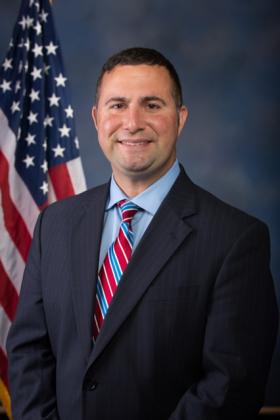Funds from the second round of the Paycheck Protection Program are finally reaching the small businesses they were intended for now that new federal rules are in place.
At a virtual town hall-style meeting Monday, Rep. Darren Soto, FL-9th, explained how the first round of $350 billion PPP funding was fraught with problems, much of it attributed to large corporations taking the funds that were intended for small businesses.
“Major businesses that shouldn’t have gotten these loans did,” Sota said, including national chains of hotels, restaurants, car dealerships and banks. Some skirted the rules by dividing into subsidiary companies, he said. To qualify, companies must have fewer than 500 employees and less than $25 million in assets.
“Many small businesses were left behind,” Soto said.
A Congressional panel is reviewing the loans, he said, and some large companies already have given back the money.
New rules for the PPP as well as new programs for medium-sized businesses and large corporations eliminated many of the problems seen during the initial rollout of the PPP in April, Soto said.
The Federal Reserve bought some of the PPP loans off the major banks to free up money for the second round of $310 billion in PPP funding distribution over the past few weeks.
Florida got $17.8 billion for about 81,000 businesses the first time around, and $12.2 billion for some 185,000 businesses the second time around. “Our belief is that if we are able to keep all these small businesses going, that we’ll be able to recover quickly in most areas,” Soto said. While if we let them go out of business the recovery is going to take longer, there’s going to be more misery, there’s going to be more people out of work. It’s going to be harder to get back to where we were pre-pandemic.” The tourism and hospitality industries are the backbone of Central Florida’s economy and among the hardest hit in the country, Soto said.
“We can’t give loans to every small business in America, but we can help those hit the hardest,” he said. The Paycheck Protection Program is what’s keeping Tim Mackey’s vacation home management business running. The St. Cloud business owner was piped into Soto’s Monday telecast.
“It’s made such a difference to us because it’s allowed us to continue in business when, quite honestly, there is no business right now,” he said. All but two of the 21 vacation homes he manages are empty, he said, and those two are occupied by the owners who decided to shelter in place in Florida instead of their homes up north.
Heavenly Holiday Homes has been able to pay staff, employ the same services, such as lawn maintenance and house cleaning, and has even reduced management fees for owners.
But he knows not everybody has been as lucky.
“It’s so sad when you drive down the tourism corridor now and you see empty parking lots and you realize how many lives that translates into, he said. It’s brutal.” The Paycheck Protection Program is administered through the federal Small Business
Administration. The federal CARES Act established the program to provide small businesses with eight weeks of cash-flow assistance to stay afloat during the COVID-19 crisis.
During the telecast, Mackey asked Soto to help ensure the loan forgiveness aspect of the PPP funding stayed intact.
“It will bring peace to a lot of those who have received it,” he said.




